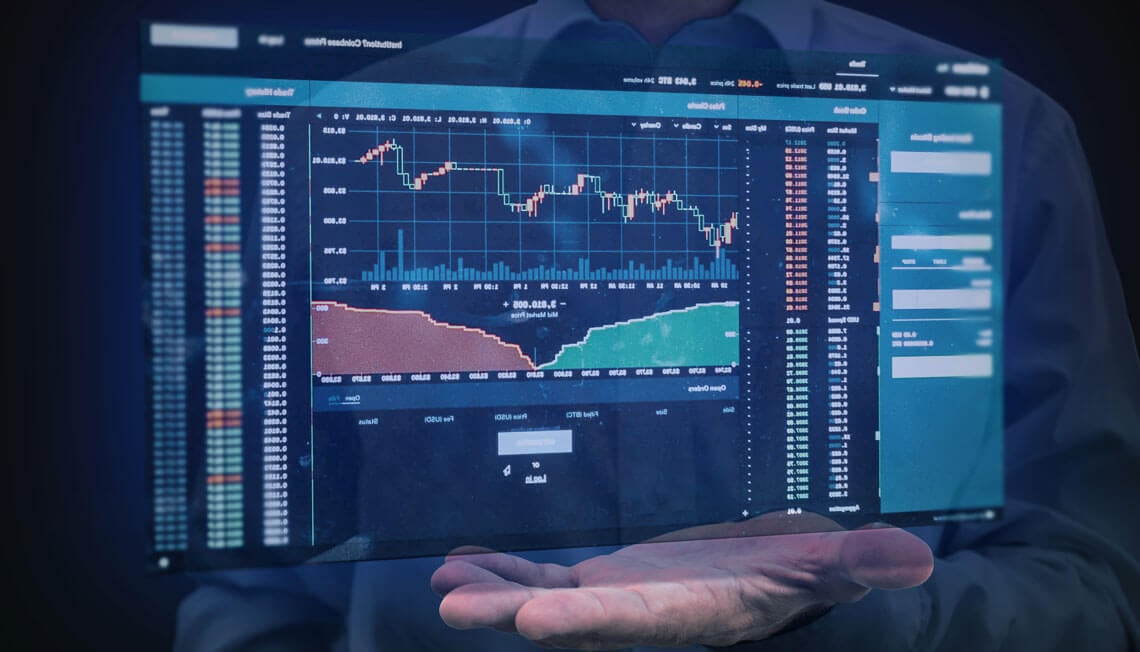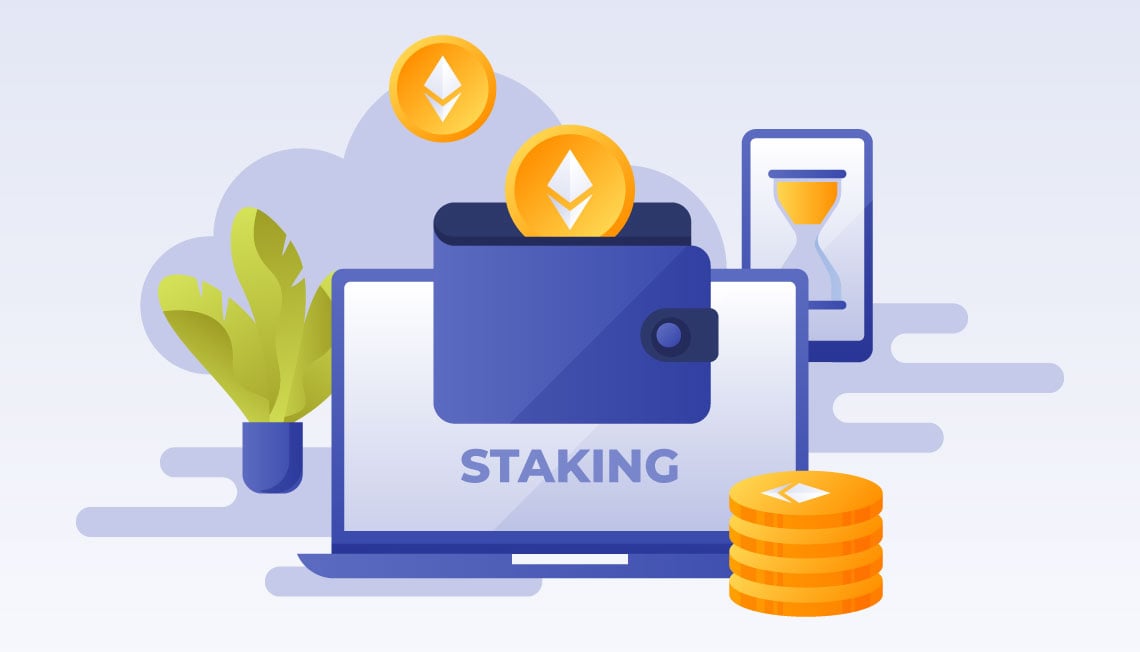How We Work

Cryptocurrency Trading
-
A) What is Cryptocurrency Trading?
Cryptocurrency trading is the act of exchanging one cryptocurrency for another or fiat currency (like USD, EUR, etc.) to profit from price fluctuations. Traders use online platforms called cryptocurrency exchanges to facilitate these transactions. The goal of crypto trading is to buy low and sell high or to speculate on price movements without actually owning the underlying assets.
-
B) what are the Types of Crypto Trading?
Spot Trading, Margin Trading, Futures Trading, Options Trading, Day Trading, Swing Trading, HodLing, Arbitrage Trading, Algorithmic Trading
-
C) How does bedfordestate-limited.com generate profits from crypto trading?
- Research and analysis of the underlying principles of different cryptocurrencies is our first step. Researching the coins' basic technology, development team, use cases, acceptance rate, and collaborations are all part of this process. Finding solid projects with practical applications will lay us the groundwork for successful trading.
- We Utilize technical analysis tools and chart patterns to identify potential entry and exit points. Technical analysis involves studying historical price and volume data to predict future price movements
- We Determine how much capital to allocate to each trade. Avoid risking too much of our capital on a single trade to prevent losses.
- We Implement stop-loss orders to limit potential losses. A stop-loss order automatically sells a cryptocurrency when it reaches a predetermined price, helping us to manage risk.
- Diversify our portfolio by investing in a variety of cryptocurrencies. This helps us spread risk and potentially capture profits from different market segments.
- Our Day traders buy and sell cryptocurrencies within the same trading day, aiming to profit from short-term price fluctuations. This strategy requires a deep understanding of technical analysis and quick decision-making that our team has
- Our Swing traders hold positions for days or weeks, aiming to capture larger price swings. They rely on technical and fundamental analysis for their trades.
- Arbitrage involves taking advantage of price differences for the same cryptocurrency on different exchanges. We buy low on one exchange and sell high on another to make a profit.
- Algorithmic Trading: We have Developed trading algorithms that can automate trading strategies, execute trades quickly, and take advantage of market opportunities 24/7. we ensure the security of your cryptocurrency holdings by using reputable wallets and exchanges.

Cloud Mining
-
A) What is Cloud mining?
Cloud mining is a way for us to potentially earn profits by participating in cryptocurrency mining without having to purchase and manage our mining hardware and infrastructure.
Cloud mining involves renting computing power and mining equipment from a third-party service provider that operates and maintains mining facilities. These facilities are equipped with ASIC (Application-Specific Integrated Circuit) miners that are specifically designed for cryptocurrency mining, Once we have purchased a contract, the cloud mining provider will allocate a portion of their mining hardware's hash rate to the company account. The hardware then starts mining cryptocurrencies, such as Bitcoin, Ethereum, or other altcoins, on our behalf
-
As the mining hardware solves complex mathematical puzzles (proof-of-work) to validate transactions on the blockchain, the company will start accumulating cryptocurrency rewards. our earnings are typically proportional to the amount of hash rate you've purchased.
-
B) How does bedfordestate-limited.com generate profits from cloud mining?
- We have partnered with a reputable cloud mining provider with a track record of reliability and transparency
- We pay low Maintenance and operational fees
- We pay a minimum withdrawal threshold specified by the provider which increases our profits
- To mitigate risk, we diversifying our cloud mining investments by purchasing contracts for multiple providers.
- The company has both Long-term contracts and short-term contracts
- We reinvest our earnings into additional hashrate contracts

Margin Trading
-
A) What is margin trading?
Margin trading is a financial strategy that allows us to borrow funds to buy more assets than we could with our capital. This can amplify potential profits if it's done correctly. Margin trading involves using a brokerage or trading platform to leverage borrowed money, known as margin, to trade various financial instruments such as stocks, cryptocurrencies, commodities, or forex. the company keeps an initial deposit known as the initial margin requirement, which serves as collateral for the borrowed funds. Leverage is the key feature of margin trading. It allows us to control a larger position size than our own capital alone would permit. Leverage is typically expressed as a ratio, such as 2:1, 5:1, or 10:1.
-
B) What types of Margin Trading?
- Long Margin Trading (Buying on Margin): In long margin trading, we borrow funds to purchase assets they expect to increase in value, when the asset's price rises, the company sells it for a profit, repays the borrowed funds, and keeps the difference as a gain.
- Short Margin Trading (Selling Short): Short-margin trading we borrow assets (usually stocks) from a broker and sell them with the expectation that their price will decline
-
c) How does bedfordestate-limited.com generate profits from margin trading?
- We earn profits through precise timing and research
- We analyze market trends, news, and indicators to make informed decisions
- Our Technical and fundamental analysis helps us to identify entry and exit points
- Company trade assets with sufficient liquidity to ensure we can execute trades at desired prices
- The company has tax experts to optimize our tax strategies which increases our profitability
- We continuously adapt, learn from our experiences, and stay updated on market developments
- We pursue both short-term trading strategies to capture quick profits and a long-term investment approach to ride out market fluctuations.

Staking
-
A) What is staking?
Staking is a process in which cryptocurrency holders lock up their tokens as collateral to support the operations of a blockchain network. In return for staking their assets, participants receive rewards, typically in the form of additional cryptocurrency tokens, Staking is a fundamental component of many Proof of Stake (PoS) and Delegated Proof of Stake (DPoS) blockchain networks and serves several purposes, Staking is often used as a consensus mechanism in PoS and DPoS blockchains, replacing the energy-intensive Proof of Work (PoW) mechanism used in Bitcoin.
-
Validators or block producers are chosen to create new blocks or validate transactions based on their stake. Some blockchain networks use staking to enable token holders to participate in network governance. The more tokens on stakes, the more influence they have in proposing and voting on protocol upgrades and changes, Staking has become a popular way for cryptocurrency holders to earn passive income, participate in blockchain governance, and support the networks they believe in.
-
B) what are the main types of staking?
- Delegated Proof of Stake (DPoS): In DPoS, token holders vote for a select number of block producers or validators to secure the network and create new blocks. Token holders can either vote themselves or delegate their voting power to a proxy. Validators are rewarded with transaction fees and, in some cases, newly minted tokens. Popular examples include EOS and Tron
- Liquid Staking: Liquid staking allows users to stake their tokens and receive liquid (tradable) tokens in return. It provides flexibility as staked assets are not locked, and users can trade or use them without unstaking. Examples include stETH on Ethereum 2.0 and Lido Finance.
- Bonded Proof of Stake: In bonded PoS, validators must lock up a specific amount of tokens as a "bond" to participate. If validators act maliciously or violate network rules, their bonded tokens can be slashed (confiscated). Tezos is an example of a blockchain using bonded PoS
- Reward Staking: This is the most common form of staking where users lock up their tokens for a specified period. Validators are chosen based on their stake, and rewards are distributed among all stakes. Networks like Cardano and Polkadot use reward staking
- Non-Custodial Staking: Some staking platforms allow users to maintain control of their private keys while staking. Users delegate their staking power without transferring ownership of their tokens. This can enhance security but may require more technical knowledge
- Staking Pools: taking pools are services that aggregate the staking power of multiple users. Users pool their tokens with others to increase their chances of being chosen as validators and earning rewards. Popular networks like Ethereum 2.0 and Solana have staking pools.
- Cross-Chain Staking: Cross-chain staking enables users to stake assets from one blockchain on another. This allows users to take advantage of staking rewards from multiple networks. Projects like Polkadot aim to facilitate cross-chain staking.
-
c) How does bedfordestate-limited.com generate profits from staking?
- We delegate tokens from a user-friendly interface, and we pay small fees for this service.
- We accumulate a reserve of tokens that we can use for staking purposes. By staking these tokens on a blockchain network, we can earn rewards over time. These rewards can be sold on the open market to generate profits.
- We often perform due diligence and risk analysis before engaging in staking activities to mitigate risks and maximize profits
- Staking often grants us, token holders, the ability to participate in the governance of a blockchain network. we can use our staked tokens to influence network upgrades, protocol changes, and other decisions that can impact the network's value. we may vote in favor of changes that align with our interests or corporate strategy.
- We strategically invest in blockchain projects or cryptocurrencies that offer staking opportunities. By holding a substantial stake in a project and participating in staking, we can benefit from both the increase in token value and the rewards earned through staking.

ICO
-
A) What is ICO?
An Initial Coin Offering (ICO) is a fundraising method used by cryptocurrency and blockchain projects to raise capital for their development. It involves the issuance of a new cryptocurrency token or coin to investors and supporters in exchange for funding. ICOs gained significant popularity in the cryptocurrency space, especially during the 2017 boom.ICOs are usually conducted on blockchain platforms, primarily Ethereum, using smart contracts to automate token distribution and fund collection. Investors participate in an ICO by sending cryptocurrencies like Bitcoin (BTC) or Ethereum (ETH) to the project's wallet address in exchange for the project's native tokens.
-
B) what are the main types of ICO?
- Utility Token ICOs: These tokens provide access to a project's product or service and may have utility within the project's ecosystem. Utility tokens are not considered securities and are often used for crowdfunding decentralized applications (DApps).
- Security Token ICOs: Security tokens represent ownership or investment in an underlying asset, such as company equity, profits, or debt. They are subject to securities regulations and require compliance with relevant securities laws.
- Equity Token ICOs: Equity tokens are a subset of security tokens that represent ownership in a company, similar to traditional stock shares. Investors in equity token ICOs are entitled to dividends or voting rights.
- Asset-Backed ICOs: These ICOs are backed by physical assets, such as real estate, precious metals, or commodities. Token holders have a claim to the underlying assets.
- Reward ICOs: Reward tokens are distributed as incentives for users or investors who contribute to a project. They may be redeemable for services, discounts, or other rewards within the project's ecosystem.
- Stablecoin ICOs: Stablecoins are tokens designed to maintain a stable value, often pegged to a specific fiat currency like the US dollar. These ICOs aim to create stable cryptocurrencies for transactions and stores of value.
-
How does bedfordestate-limited.com generate profits from ICO?
- First we need to Understand the purpose, goals, and technology behind the ICO. Research the team members, their experience, and their track record in the industry.
- We study a whitepaper that outlines the project's vision, technology, and roadmap. Analyze this document thoroughly
- We understand the utility of the token being offered. Does it have a clear and necessary function within the project's ecosystem also Consider whether the token has the potential to appreciate over time as the project develops
- We look for The team behind the ICO it plays a critical role in its success. we always Look for a team with relevant experience and a track record of delivering on their promises
- We Analyze the token distribution. A well-structured ICO will have a clear allocation plan, including how tokens are distributed to founders, advisors, investors, and the community
- Company Diversify its investments we avoid putting all your funds into a single ICO. Diversification helps us to increase profits

IPO
-
a) What is IPO?
IPO stands for "Initial Public Offering." It is the process through which a privately held company becomes a publicly traded company by offering its shares to the public for the first time. When a company decides to go public through an IPO, it typically works with investment banks and underwriters to facilitate the process.They can provide companies with access to a significant amount of capital, allowing them to fund growth, pay off debt, or achieve other corporate objectives. They also provide an opportunity for early investors and company founders to realize some of their investments by selling their shares to the public.
-
b) what are the main types of IPOs?
- Traditional IPO: This is the most common type of IPO. In a traditional IPO, a company hires investment banks to underwrite and distribute its shares to the public. The company and its underwriters set an offering price, and the shares are sold to institutional and retail investors through the stock market.
- Direct Listing: In a direct listing, a company goes public without raising new capital or using underwriters. Instead, existing shareholders, including employees and early investors, can sell their shares directly to the public on the stock exchange. There is no fixed offering price, and the market determines the initial trading price.
- SPAC IPO: Special Purpose Acquisition Companies (SPACs) are shell companies formed specifically to raise capital through an IPO with the sole purpose of acquiring an existing private company. After the SPAC goes public, it has a certain timeframe to identify and merge with a target company.
- Reverse Merger IPO: Also known as a reverse takeover (RTO), this involves a private company acquiring a publicly traded shell company. The private company essentially takes over the publicly traded entity's listing status and becomes a publicly traded company without going through the traditional IPO process.
- Dual-Class IPO: Some companies issue two classes of shares with different voting rights during their IPOs. Typically, the founders and insiders hold shares with superior voting rights (Class B shares), allowing them to retain more control over the company compared to public shareholders who hold Class A shares with lower or no voting rights.
- Crowdfunding IPO: In some countries, some regulations allow small and early-stage companies to conduct IPOs through crowdfunding platforms. Investors can purchase shares directly from the company through crowdfunding campaigns.
- International IPO: Companies may choose to go public on stock exchanges outside their home country to access global capital markets. This type of IPO involves complying with the regulations and listing requirements of the foreign exchange
-
c) How does bedfordestate-limited.com generate profits from IPO?
- We thoroughly research the company going public to understand the business model, financials, competitive landscape, and risk factors and also analyze the company's industry and market trends. Assess the company's growth potential and competitive advantage
- We evaluate the IPO's pricing. Compare the offering price to the company's earnings, revenue, and industry benchmarks to determine if the IPO is reasonably valued.
- The company checks the lock-up period, during which insiders and early investors are prohibited from selling their shares. The end of the lock-up period can lead to increased supply and potentially lower prices
- We consider the overall market conditions and sentiment. IPOs can perform better in a bullish market but may struggle in a bearish or volatile market
- WE Establish a clear exit strategy at what price we will consider selling to lock in profits
- We always Diversify our portfolio we Don't put all your funds into a single IPO.

Gold And Silver Trading
-
A) What is gold and silver trading?
gold and silver trading refers to the buying and selling of these precious metals in various financial markets. Both gold and silver have been used as stores of value and mediums of exchange for centuries, making them popular commodities for investment and trading
-
B) What are the main types of gold and silver trading?
-
- Spot Trading: Spot trading is the most common form of trading for gold and silver. In this type of trading, participants buy or sell the actual physical metals for immediate delivery. It involves the exchange of gold and silver at the current market price, known as the "spot price." Spot trading is typically settled within a few days, and physical delivery can occur if both parties agree.
-
- Futures and Options Trading: Futures and options trading involves contracts that derive their value from the price of gold or silver but do not necessarily involve the physical exchange of the metals. Futures Contracts, These are agreements to buy or sell a specified amount of gold or silver at a predetermined price on a future date. Traders can profit from price movements without owning the actual metals. Futures contracts are widely used by speculators and hedgers, such as mining companies, to manage price risk. Options Contracts Options give traders the right, but not the obligation, to buy (call option) or sell (put option) a certain amount of gold or silver at a predetermined price (strike price) before a specified expiration date. Options are valuable for traders looking to profit from price volatility while limiting potential losses.
- Exchange-Traded Funds (ETFs): Gold and silver ETFs are investment funds that hold physical gold or silver bullion or derivative contracts that track the metals' prices. Investors can buy and sell shares of these ETFs on stock exchanges, providing a convenient way to gain exposure to gold and silver without dealing with physical storage. Popular gold ETFs include SPDR Gold Trust (GLD), while iShares Silver Trust (SLV) is a prominent silver ETF.
- Contracts for Difference (CFDs): CFDs are financial derivatives that allow traders to speculate on the price movements of gold and silver without owning the underlying assets. When trading CFDs, traders enter into a contract with a broker, and the profit or loss is determined by the difference between the entry and exit prices. CFDs provide leverage, allowing traders to amplify their potential gains or losses.
- Physical Bullion Trading: Some investors prefer to buy and hold physical gold and silver in the form of coins, bars, or jewelry. These physical assets can be stored in a secure location or kept at home. Physical bullion trading is not purely speculative, as it often serves as a long-term store of value and a hedge against economic uncertainties.
-
c) How does bedfordestate-limited.com generate profits from gold and silver trading?
- For us fundamental principle of trading is to buy precious metals like gold and silver when their prices are low and sell them when prices are high. we always monitor market conditions, economic indicators, and geopolitical events to predict price movements and make informed trading decisions
- Sometimes we act as market makers, facilitating transactions by providing liquidity in the market. we buy from sellers and sell to buyers, profiting from the spread (the difference between the buying and selling prices). We aim to maintain a balanced inventory of gold and silver to meet market demand
- We engage in speculative trading, taking positions in the gold and silver markets based on their forecasts of future price movements. We use technical analysis, fundamental analysis, and other strategies to make speculative bets on price direction.







